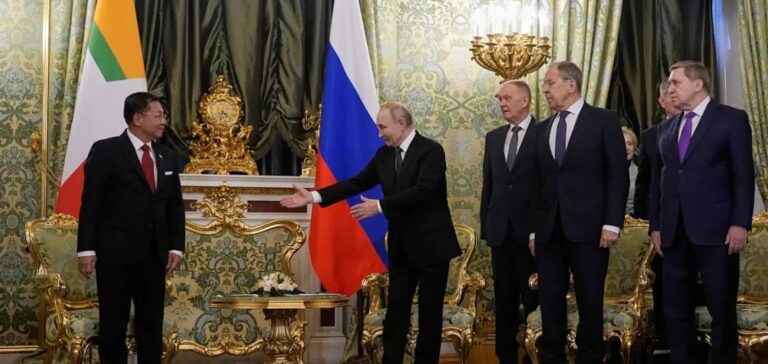During a meeting at the Kremlin between Russian President Vladimir Putin and Myanmar’s junta leader Min Aung Hlaing, the two countries formally signed an agreement concerning the construction of a small nuclear power plant in Myanmar. This project aims to enhance the country’s energy supply while supporting its economic development.
A small-scale nuclear power project
The signed agreement outlines the construction of a nuclear plant with an initial capacity of 110 megawatts, with the potential to expand this to 330 megawatts. The Russian nuclear giant, Rosatom, has been designated to carry out this initiative. According to statements from both countries, this infrastructure is expected to provide Myanmar with an energy source that is both affordable and relatively clean, thereby stimulating the local economy.
Putin highlighted that the project would create 1,000 new jobs in Myanmar and also promote the training of skilled personnel in the energy sector. Although the agreement has now been signed, details concerning the timeline for the project’s completion remain unclear.
Strengthened partnership between the two countries
This project forms part of a broader framework of growing cooperation between Russia and Myanmar, particularly in the energy and commercial sectors. The Russian president specified that nearly 90% of the oil consumed in Myanmar in 2024 came from Russia, which is a crucial aspect of trade between the two nations.
The relationship between Moscow and Naypyidaw is particularly significant for the Myanmar junta, which has faced a series of international sanctions since the 2021 coup. As a result, Myanmar seeks to diversify its trade partners and reduce its international isolation, notably by strengthening ties with Russia. This increased cooperation is seen as essential to circumvent the effects of Western-imposed economic sanctions.
Strategic support amidst the war in Ukraine
During the meeting, Min Aung Hlaing expressed his support for Vladimir Putin, emphasising that Myanmar fully understood the situation in Russia. The junta leader reiterated his support for Russia’s “special military operation” in Ukraine, using the official Russian terminology to describe the ongoing invasion. This mutual support appears to further strengthen the bonds between the two regimes, especially since Myanmar has also benefited from Russian military support in the past.
As a sign of this growing proximity, Min Aung Hlaing invited Putin to visit Myanmar, while the Russian leader proposed that the Myanmar junta participate in the May 9 military parade on Red Square in Moscow. This exchange of courtesies illustrates the strategic importance of the relationship between the two countries, although their cooperation is often perceived as being linked to their respective positions on international sanctions.






















